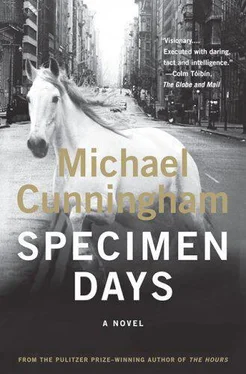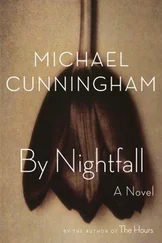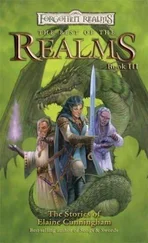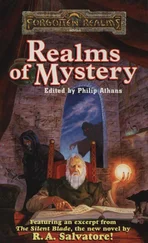Michael Cunningham - Specimen Days
Здесь есть возможность читать онлайн «Michael Cunningham - Specimen Days» — ознакомительный отрывок электронной книги совершенно бесплатно, а после прочтения отрывка купить полную версию. В некоторых случаях можно слушать аудио, скачать через торрент в формате fb2 и присутствует краткое содержание. Город: New York, Год выпуска: 2005, ISBN: 2005, Издательство: Farrar, Straus and Giroux, Жанр: Современная проза, на английском языке. Описание произведения, (предисловие) а так же отзывы посетителей доступны на портале библиотеки ЛибКат.
- Название:Specimen Days
- Автор:
- Издательство:Farrar, Straus and Giroux
- Жанр:
- Год:2005
- Город:New York
- ISBN:0-374-70515-1
- Рейтинг книги:4 / 5. Голосов: 1
-
Избранное:Добавить в избранное
- Отзывы:
-
Ваша оценка:
- 80
- 1
- 2
- 3
- 4
- 5
Specimen Days: краткое содержание, описание и аннотация
Предлагаем к чтению аннотацию, описание, краткое содержание или предисловие (зависит от того, что написал сам автор книги «Specimen Days»). Если вы не нашли необходимую информацию о книге — напишите в комментариях, мы постараемся отыскать её.
Specimen Days — читать онлайн ознакомительный отрывок
Ниже представлен текст книги, разбитый по страницам. Система сохранения места последней прочитанной страницы, позволяет с удобством читать онлайн бесплатно книгу «Specimen Days», без необходимости каждый раз заново искать на чём Вы остановились. Поставьте закладку, и сможете в любой момент перейти на страницу, на которой закончили чтение.
Интервал:
Закладка:
“It’s not from Whitman.”
“I thought not. Though I can’t claim to know every single line.”
“Does it suggest anything to you?”
“Not really. Could you put it in some sort of context?”
“Say, as a declaration. If somebody said to you, ‘I’m in the family.’ In light of Whitman.”
“Well. Whitman empathized with everyone. In Whitman there are no insignificant lives. There are mill owners and mill workers, there are great ladies and prostitutes, and he refuses to favor any of them. He finds them all worthy and fascinating. He finds them all miraculous.”
“The way, say, a parent refuses to favor one child over the others?”
“I suppose you could say that, yes.”
“What about the idea of working for a company?”
“I beg your pardon?”
“If somebody said, ‘We all work for the company.’ In light of Whitman.”
“Hmm. I could go out on a limb a little, I suppose.”
“Please do.”
“Well. When Whitman published the first edition of Leaves of Grass, the industrial revolution was well under way. People who had lived on farms for generations were all moving to the cities in hopes of getting rich.”
“And…”
“A handful did in fact get rich. Almost everybody else worked twelve-hour shifts in factories, six days a week. It was the end of the agrarian world and the beginning of the mechanized one. Do you know that universal time didn’t exist until around the late 1800s? It was two o’clock in one village, three o’clock in another. It wasn’t until the transcontinental railroads that we all had to agree on when it was two and when it was three, so people could make their trains. It took a full generation just to convince people that they had to show up at work every single day at the same hour.”
“Everybody worked for the company, in a manner of speaking.”
“You could say that. But, really, it’s impossible to pin a poet like Whitman down this way. Was he writing about industrialization? Yes, he was. Was he writing about family? Certainly. And he was also writing about logging and sex and the westward expansion. You can go at him from just about any angle and find something that seems to support some thesis or other.”
“I see.”
“‘Of Life immense in passion, pulse, and power, cheerful, for freest action form’d under the laws divine, The Modern Man I sing.’ I’m afraid that if you insist on too much focus here or there, you miss the larger point.”
Cat said, “‘To die is different from what any one supposes, and luckier.’”
“You know your Whitman, then.”
“Just a line or two. I shouldn’t take up any more of your time.”
“I don’t think I’ve been very helpful.”
She rose graciously, a compassionate duchess who’d reached the limits of her ability to intercede in the coarser mysteries of the world, its infestations and calamitous weather. There were afflictions that were probably best addressed by local methods by chants and ritual burnings, the drawing of pentagrams.
“May I ask you one more question?” Cat said. “It’s not related to Whitman.”
“By all means.”
“Is this where that fire was, the one that killed all those women? Was it this building?”
“No, actually, that building is around the corner. It’s part of the biochemistry department now.”
Cat rose and went to the window. It was all calmness below. It was students hurrying to class and, at the end of the block, the leaf-shimmer of Washington Square Park.
She called Pete on her cell when she got to the street.
“Ashberry.”
“I just talked to the Whitman person.”
“She tell you anything?”
“It seems you could interpret him as some sort of voice for the status quo. As in, if you worked at some awful job in a factory, twelve hours a day, six days a week, here was Whitman to tell you that your life was great, your life was poetry, you were a king in your own world.”
“You think the kid thinks that?”
“I think somebody thinks that. I think somebody is speaking through the kid.”
“You on your way back in?”
“I am.”
“See you.”
Pete was waiting in her cubicle when she arrived. He didn’t ask about Whitman. He said, “Dick Harte’s wife just gave us a little something.”
“What?”
“He woke up in the middle of the night, the night before he was killed. Said he heard a noise.”
“A noise?”
“One of those middle-of-the-night things.”
“He was scared?”
“She didn’t say scared. She said he said he heard a noise. She said he said he was going to go see what it was.”
"She was scared.”
“Yeah. But she takes a little something to help her sleep. She doesn’t rouse easily, it seems.”
“And?”
“And he got up, left the bedroom. Was gone maybe ten minutes. Came back, said it was nothing, the two of them went back to sleep.”
“That’s it?”
“That’s it,” Pete said.
“You think it means anything?”
“Probably not. What do you think?”
“Hard to say. Probably not.”
“At least she’s talking now.”
“The daughter?”
“Still in the ozone. Seriously unhinged.”
“What’s up with the son?”
“Mondo cooperative. Scary cooperative. Boy detective seems to like his sudden fame.”
“As people do.”
“He’s a piece of work, as it turns out. Serious drug history, lately turned to Jesus. That school in Vermont’s a jail, basically, for rich kids.”
“Interesting.”
“Semi-interesting. You don’t think the son’s involved, do you?”
“No. I don’t.”
“We’re not going to get anything from the family, I don’t think. I mean, I don’t think there’s anything to get.”
“Probably right,” she said.
And yet, an image crept into her mind. She pictured Dick Harte roused from sleep, walking through a big, dark house in his pajamas (he’d have worn pajamas, wouldn’t he; a balding fifty-three-year-old with no record of drug use or illicit sex, a man who paid his bills on time, whose pretty wife number two sent herself to Pluto every night with the help of a few key Pharmaceuticals), tracking down a suspicious nocturnal sound. What would it have been like, being Dick Harte? Was he satisfied; was he prospering in his heart? Had he had a premonition that night, out there in the stately abundance of Great Neck? Cat imagined him going down the staircase, walking barefoot over parquet and Oriental rugs, finding nothing amiss, but wondering. She pictured him going to a window make it a living-room window, Thermopane, with heavy brocade window treatments (the wife was a decorator, right?); say it looked out onto an expanse of black lawn, with hedges and rosebushes and the dark glitter of a pool. She saw Dick standing at the window, looking out. She saw him understanding he would sense more than see it that a child stood on his lawn, a boy, skinny and erect and alert, crazy and worshipful: a sentinel, watching Dick Harte’s slumbering house the way a guerrilla fighter might take a last look at a village, its lamps extinguished and its people dreaming, before he set it on fire. The child would have vanished immediately, nothing more than a child-shaped shadow that resolved itself into a patch of darkness where a rosebush bore no blooms. Dick would have shrugged it off, gone back to bed, assured his zonked-out wife that there was nothing to fear.
Pete said, “Just wanted to let you know. See you later.”
“I’ll be right here. At my loom.”
“Huh?”
“Nothing. See you later.”
She sat at her desk, resumed her waiting. Was it possible that the kid had gone out to Dick Harte’s house, to see his deathmate at home? Unlikely. She was projecting. Say it: you want Luke to be out there in the dark, watching you. You want that, and you fear it. She couldn’t help imagining herself looking down at Fifth Street from her own window, late at night, and seeing him on the pavement, three years old, staring up at her window. There he’d be, dark-eyed, curious, prone to fits of inexplicable laughter, a little bit pigeon-toed, devoted to trucks and to anything red.
Читать дальшеИнтервал:
Закладка:
Похожие книги на «Specimen Days»
Представляем Вашему вниманию похожие книги на «Specimen Days» списком для выбора. Мы отобрали схожую по названию и смыслу литературу в надежде предоставить читателям больше вариантов отыскать новые, интересные, ещё непрочитанные произведения.
Обсуждение, отзывы о книге «Specimen Days» и просто собственные мнения читателей. Оставьте ваши комментарии, напишите, что Вы думаете о произведении, его смысле или главных героях. Укажите что конкретно понравилось, а что нет, и почему Вы так считаете.












